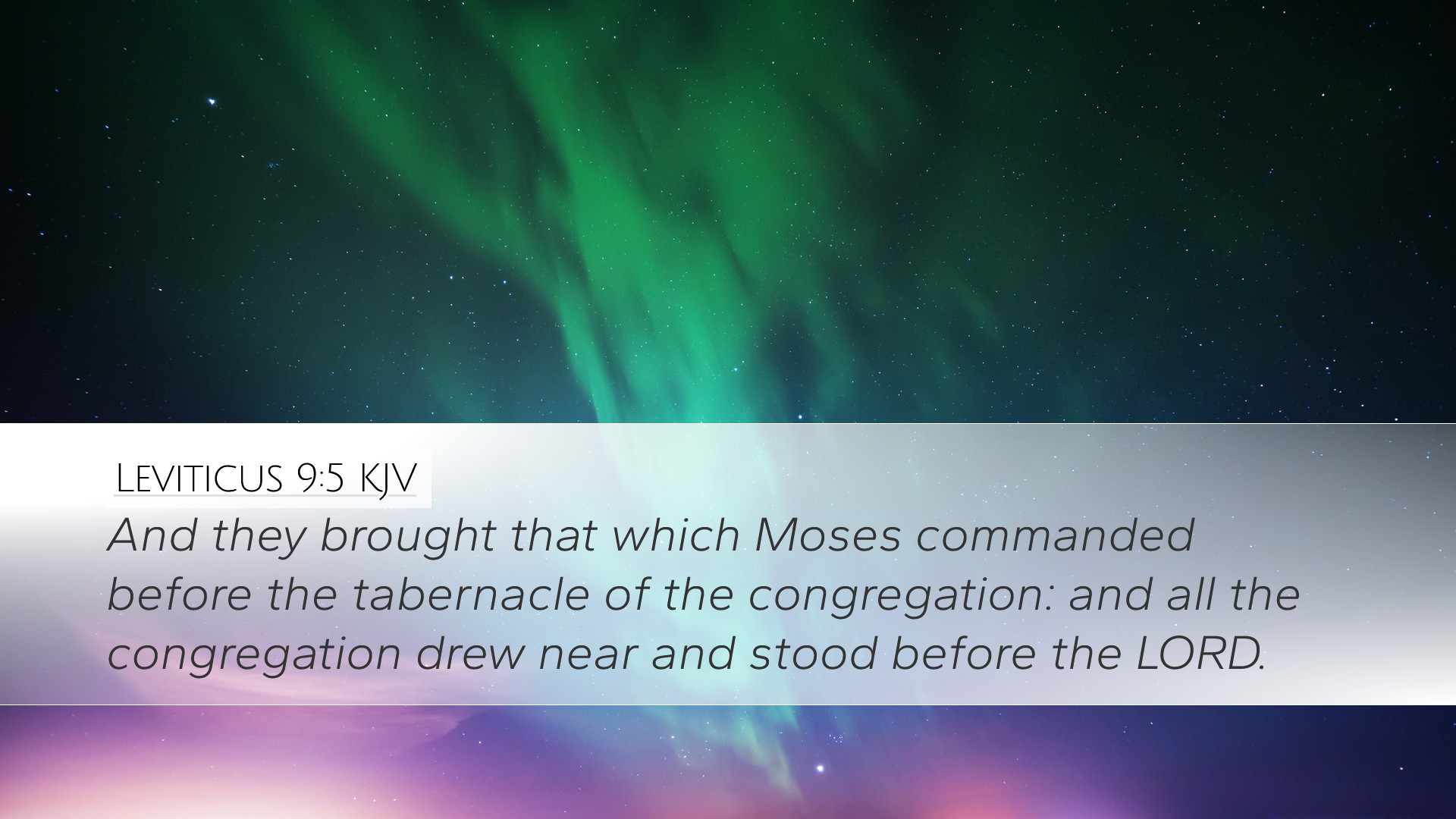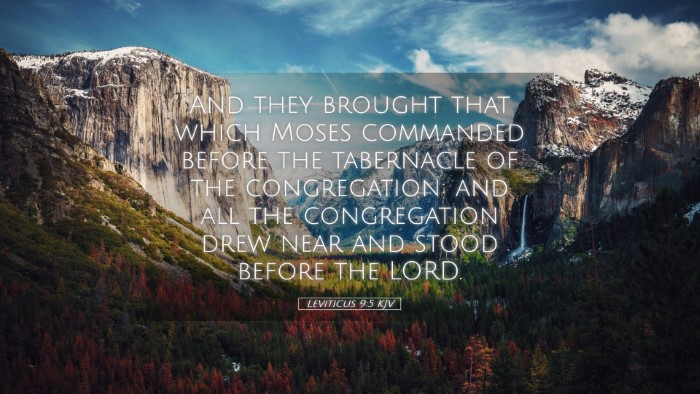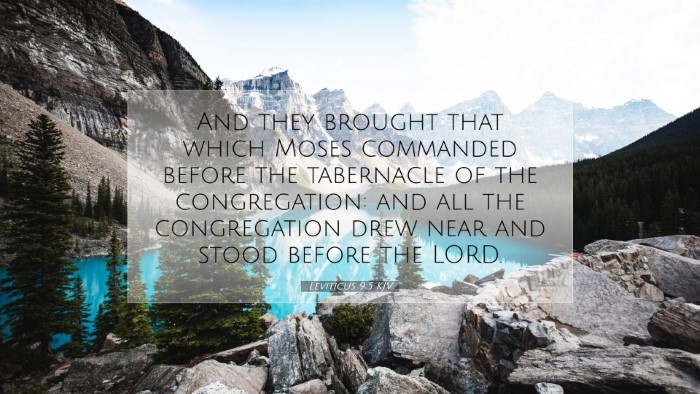Commentary on Leviticus 9:5
Text of Leviticus 9:5: “So they brought what Moses commanded before the tent of meeting, and all the congregation drew near and stood before the Lord.”
Contextual Overview
The ninth chapter of Leviticus is pivotal as it describes the inauguration of the priesthood and the commencement of formal worship. Following the consecration of Aaron and his sons, this chapter marks the transition from the preparation phase to the actual exercise of priestly duties, emphasizing the solemnity and significance of approaching God.
Exegesis of Leviticus 9:5
This verse encapsulates not only a physical act of preparation—a bringing of offerings—but also symbolizes a deeper spiritual readiness. The phrase "what Moses commanded" illustrates obedience and underscores the authority of Moses as God's mediator at this juncture. It is vital to note that this command was not merely ritualistic; it represented the community's response to divine instruction.
Insights from Matthew Henry
Matthew Henry emphasizes that “the congregation drew near and stood before the Lord,” which signifies a communal acknowledgment of God's presence. He suggests that the act of bringing offerings not only exemplifies obedience but fosters a relationship between God and His people, marking a communal aspect of worship. The drawing near highlights both reverence and intimacy, expressing the longing to be in the presence of the Almighty.
Insights from Albert Barnes
Albert Barnes notes that this verse reflects the organization of worship within the Israelite community. He elaborates on how the act of bringing offerings was an essential part of public worship and served as a means for the people to express their gratitude and reverence toward God. Barnes emphasizes the importance of adherence to divine instruction in worship practices, hinting that deviations could lead to undesirable consequences.
Insights from Adam Clarke
Adam Clarke presents a rich theological perspective on the significance of the offerings. He explains that this moment was a foreshadowing of the ultimate sacrifice of Christ. Clarke further elaborates that the specifics of the offerings indicate deeper elements of atonement and acceptance before God, emphasizing that true worship involves understanding one’s position before a holy deity and responding appropriately with humility and gratitude.
Theological Implications
- Obedience and Authority: The text signifies the necessity of obeying divine commandments as a prerequisite for worship. It highlights the role of spiritual leaders in guiding the community in adherence to God's laws.
- Communal Worship: The congregation's approach to God illustrates the importance of community in worship. It is a reminder that worship is not merely an individual act but a collective experience that fosters unity.
- God’s Presence: The act of standing before the Lord reflects the gravity of God’s presence. The awe and reverence demanded in worship are paramount, showcasing the holiness of God and the proper posture of worshippers.
- Symbolism of Offerings: Each offering represents various aspects of reconciliation and agreement with God, and this verse foreshadows the larger sacrificial system that is central to Israel’s identity as a holy nation.
Applications for Modern Readers
Leviticus 9:5 holds valuable lessons for contemporary believers and church leaders. The call to bring offerings in obedience can be applied in various contexts—including moral, emotional, and financial realms. Modern worship should carry a similar weight of reverence as found in this narrative. Moreover, it encourages communal participation in worship, global unity among the body of Christ, and highlights the importance of preparing one’s heart before approaching God.
Pastors and church leaders can draw from this passage to emphasize the importance of following God’s word in all aspects of church life, while students and scholars may explore the richness of its implications for understanding Old Testament worship practices and their relationship to the New Covenant.
Conclusion
In summary, Leviticus 9:5 serves as a foundational scripture that informs our understanding of worship, communal dynamics, and the intricate relationship between God and His people. It calls upon individuals and communities alike to approach God with reverence, in obedience to His commands, and in the joyful submission to His divine authority. By utilizing the insights from Matthew Henry, Albert Barnes, and Adam Clarke, readers can grasp the richness of this passage and its implications for both historical and contemporary worship settings.


